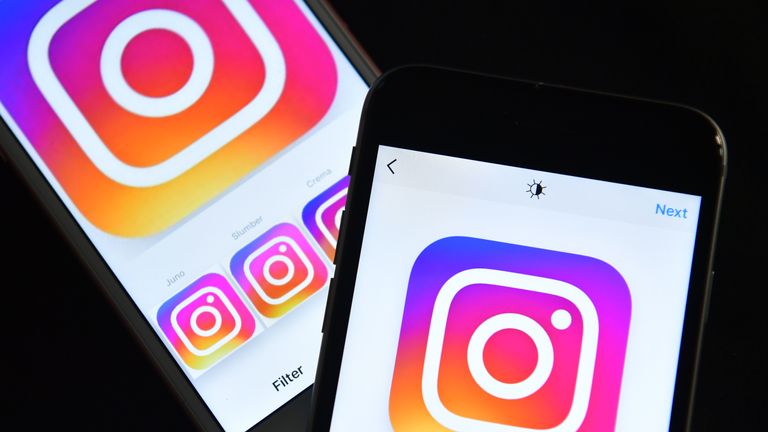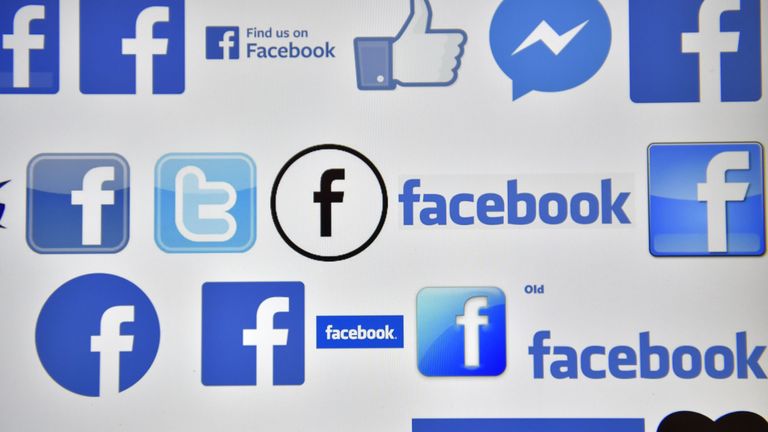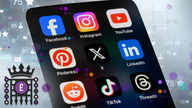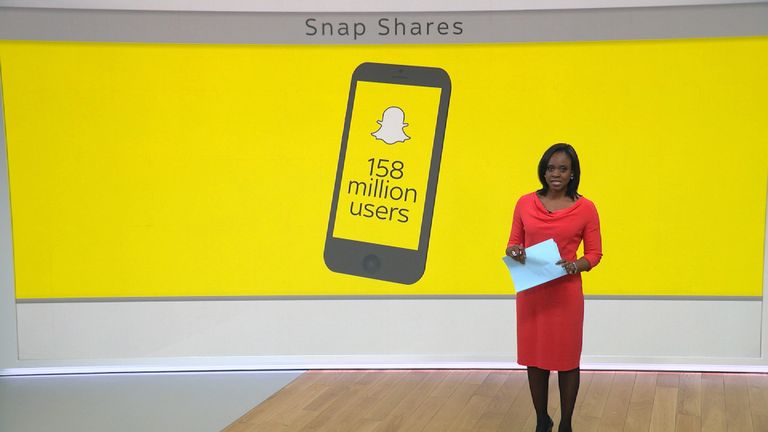Instagram rated worst media for mental health
The picture-focused platform puts users at risk of loneliness, depression and body image anxiety, a health group claims.
Monday 22 May 2017 02:00, UK
Instagram has been rated the worst social media site for young people's mental health, according to a survey.
The platform has the most negative impact on users and puts them at risk of suffering loneliness, depression and body image anxiety, the Royal Society for Public Health has warned.
Their words come following a survey of almost 1,500 people in the UK aged 14 to 24 which asked them to score each social media platform on its effect on health and wellbeing.
The respondents were asked to consider issues including access to expert information, emotional support, anxiety, depression, sleep, self-expression, body image, community building and bullying.
Instagram was rated the most negatively, followed by Snapchat, Facebook, Twitter and then YouTube.
Instagram was rated badly for seven of the 14 measures: its impact on sleep, body image and fear of missing out, bullying and feelings of anxiety, depression and loneliness.
But those surveyed did say there were positives - self-expression, self-identity and emotional support.
YouTube scored badly for its impact on sleep but was ranked well in nine other categories, including awareness and understanding of other people's health experience, self-expression, loneliness, depression and emotional support.
Shirley Cramer CBE, chief executive, of the RSPH, said: "It's interesting to see Instagram and Snapchat ranking as the worst for mental health and wellbeing - both platforms are very image-focused and it appears they may be driving feelings of inadequacy and anxiety in young people.
"As the evidence grows that there may be potential harms from heavy use of social media, and as we upgrade the status of mental health within society, it is important that we have checks and balances in place to make social media less of a wild west when it comes to young people's mental health and wellbeing."
Dr Becky Inkster, honorary research fellow, University of Cambridge, said: "Young people sometimes feel more comfortable talking about personal issues online.
"As health professionals we must make every attempt to understand modern youth culture expressions, lexicons, and terms to better connect with their thoughts and feelings."
Professor Sir Simon Wessely, president of the Royal College of Psychiatrists, told The Guardian: "I am sure that social media plays a role in unhappiness, but it has as many benefits as it does negatives.
"We need to teach children how to cope with all aspects of social media - good and bad - to prepare them for an increasingly digitised world.
"There is real danger in blaming the medium for the message."
Instagram's website says it has more than 600 million active monthly users.
Michelle Napchan, Instagram head of policy, EMEA, said: "Keeping Instagram a safe and supportive place, where people feel comfortable expressing themselves, is our top priority - particularly when it comes to young people.
"Every day people from all over the world use Instagram to share their own mental health journey and get support from the community.
"For those struggling with mental health issues, we want them to be able to access support on Instagram when and where they need it.
"That's why we work in partnership with experts to give people the tools and information they need while using the app, including how to report content, get support for a friend they are worried about or directly contact an expert to ask for advice on an issue they may be struggling with."






